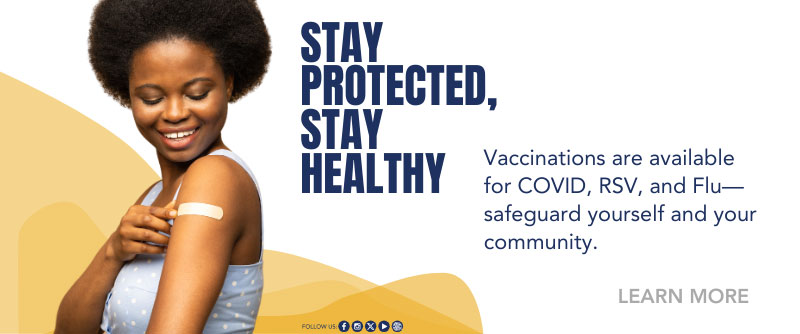
Autism is a developmental disability that usually appears early in life. Children with autism disorder have problems with communicating, socializing, and attentiveness. There is no cure for autism, but early treatment can help children to talk, play, and develop more normally.
For more information about testing or treating your child for autism, call our Early Intervention Program at 601-576-7427.
Autism Disorder
Autism, also known as "classical autism" is the most common condition in a group of developmental disorders known as autism spectrum disorders (ASDs). Experts estimate that three to six children out of every 1,000 will have autism.
What to Look For: Signs of Autism
There are three distinctive signs (behaviors) that parents should be aware of:
- Difficulties with social interaction
- Problems with verbal and nonverbal communication
- Repetitive behaviors or narrow, obsessive interests
Signs of autism can appear as early as infancy. The most common sign is unresponsiveness to people or focusing intently on one item for long periods of time. Parents are usually the first to notice signs of autism in their child. Children with autism may appear to develop normally, but they later withdraw and become indifferent to social engagement.
Many children suffering from autism have reduced sensitivity to pain. However, they are abnormally sensitive to sensations such as sound and touch, and these sensitivities can contribute to behavioral symptoms such as resistance to being cuddled or hugged.
Testing
Our Early Intervention/First Steps program provides evaluation and services for children up to three years old who may have developmental delays. Contact your local health department to find out more.
Treatment
Currently, there is no cure for autism. Treatment for autism includes therapy and behavioral interventions that are designed to remedy specific symptoms, and medications which handle symptoms of anxiety, depression or obsessive-compulsive disorder (OCD).
Questions & Answers
I suspect my child or a child I know might have autism. How do I find out?
Autism is just one of the possible disorders that can affect the proper development of your child.
You can check your child's progress in development by looking at what their behavior should be for their age:
- Developmental milestones from the CDC
What causes autism?
The exact cause of autism is not known. Autism has a tendency to run in families, but there is no way to predict if a child will develop autism or not.
How do I know what therapies are right for my child?
As our understanding of autism has progressed, new therapies have
been introduced that address different aspects of this condition. Some therapies are medical,
some psychological, and some behavioral. Child health specialists can help
determine the right approach for your child's case, and locate appropriate professionals
for a given treatment.
Can children with autism grow up to marry or live an independent life?
People with autism can live just as long as the average person, and may go on to lead fulfilling lives. People with high-functioning autism or Asperger's Syndrome do marry, attend college, have successful careers and participate in their communities. Other individuals with autism will require care and guidance throughout their lives in order to function more normally.
Should I be worried about vaccinating my child?
Extensive studies have found no link between vaccines and autism disorders. The best medical evidence points to autism being a condition that is present from birth.
Related Programs and Services
- Children and Youth with Special Healthcare Needs
- Early Intervention (First Steps)
The programs below may be able to assist families with an autistic child.

